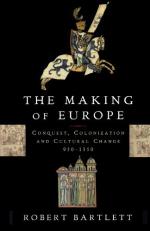|
This section contains 215 words (approx. 1 page at 300 words per page) |

|
One unexpected consequence of the spread of Christian teachings into China was the rise of a powerful religious movement that drew on Christian teachings but was not truly Christian. After coming into contact with Christian literature, a charismatic Chinese rebel named Hung Hsiu-ch'uan (1814-1864) proclaimed himself a son of God who was called to reform China. In 1846 he and a friend formed the Association of God Worshipers, a semi-Christian group that taught that all property should be held in common, that the sexes were equal, and that the state must prohibit prostitution, adultery, slavery, opium, alcohol, and the binding of women's feet. By 1850 Hung's followers included more than one million disciplined soldiers, who set out to make Hung the new emperor of China, launching the so-called Taiping Rebellion. In 1853 they conquered Nanking, making it their "Heavenly Capital." Their attempt to take Beijing...
|
This section contains 215 words (approx. 1 page at 300 words per page) |

|




